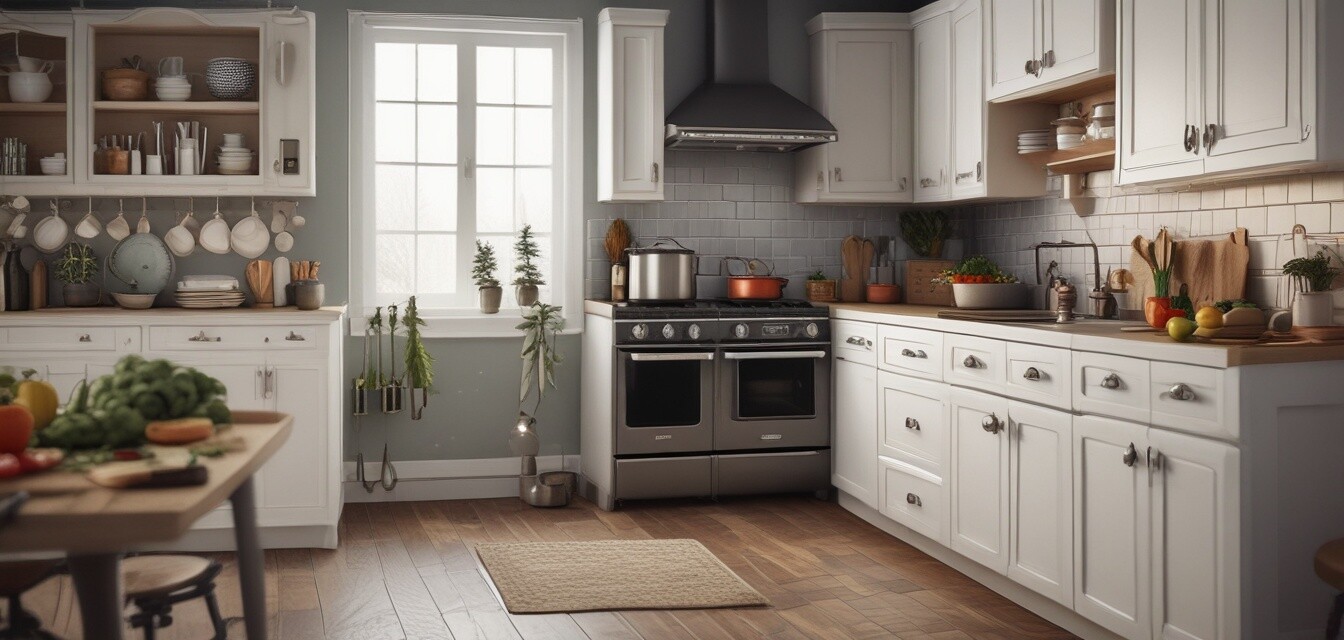
Energy Efficient Holiday Cooking Tips
Key Takeaways
- Utilize energy-efficient appliances to reduce electricity consumption.
- Plan your meals to optimize cooking times and methods.
- Incorporate alternative cooking methods such as slow cooking or pressure cooking.
- Maximize oven usage by cooking multiple dishes simultaneously.
- Keep appliances well-maintained for peak energy efficiency.
The holidays are a time for celebration and feasting, but preparation can often lead to high energy bills and excess waste. By following these energy-efficient cooking tips, you can enjoy delicious holiday meals while being kind to both your wallet and the environment. Let’s delve into practical strategies you can implement with your kitchen appliances!
1. Plan Your Holiday Meals
Begin by creating a meal plan that optimizes your cooking methods and reduces the number of times you use appliances. Consider cooking dishes that can be prepared in advance and stored until needed. This approach not only saves energy but also time on the day of your gathering.
Example Meal Plan
| Dishes | Preparation Time | Cooking Method |
|---|---|---|
| Roast turkey | 2 hours (brine overnight) | Oven |
| Mashed potatoes | 30 minutes | Stovetop |
| Green bean casserole | 40 minutes | Oven (concurrent with turkey) |
| Pumpkin pie | 1 hour | Oven (after turkey) |
2. Choose Energy-Efficient Appliances
Using appliances designed for energy efficiency can significantly cut down on your energy usage. Always look for the Energy Star label when purchasing new appliances for your kitchen. If you’re not ready to invest in new appliances, ensure your current utensils are maintained so they perform optimally.
3. Maximize Oven and Stovetop Usage
It’s common for ovens to consume a large amount of energy. Utilize the following strategies to make the most of your oven when preparing holiday meals:
- Cook multiple dishes at once: Plan dishes that can share oven space without flavor mixing.
- Use the residual heat: Turn off the oven a bit before your food is fully cooked and utilize the residual heat to finish the cooking.
- Keep the oven door closed: Each time you open the door, heat escapes, making your oven work harder.
4. Consider Alternative Cooking Methods
In addition to traditional cooking methods, consider these alternatives that could save energy and time:
- Slow cookers: Great for preparing stews and soups over several hours with minimal energy.
- Pressure cookers: They prepare meals much faster, using less energy.
- Microwave ovens: Use this for reheating and cooking smaller portions to save on larger appliance energy.
5. Maintain Your Appliances
Regular maintenance of your cooking appliances can enhance their efficiency. Ensure your oven seals are airtight, your stovetop doesn’t have any clogged burners, and your dishwasher is clean and functioning well. Here are some basic maintenance tips:
- Clean the coils: Dirty coils can increase the energy your refrigerator uses.
- Descale your dishwasher: This ensures optimal performance and energy efficiency.
- Check seals: Make sure none of your appliances have worn-out seals to prevent energy loss.
6. Reduce Your Cooking Time
Consider prepping ingredients in advance to save time on cooking day. Chopping vegetables the night before or marinating meats in advance can cut down on active cooking time significantly, freeing you to enjoy the festivities.
Pros
- Lower electricity bills.
- Less wear and tear on appliances.
- Environmentally friendly.
- Time-saving strategies lead to stress reduction.
Cons
- Requires thoughtful meal planning.
- Shifts traditional cooking habits.
- May need to purchase energy-efficient appliances.
Conclusion
By implementing these energy-efficient holiday cooking tips, you can not only save on costs but also contribute to a greener planet. Remember, the true spirit of the holidays is enjoying time with loved ones. Let these strategies guide you to a fulfilling and environmentally conscious culinary experience!
Further Reading
Check out our other articles for more insights on energy-saving home appliances:
- Tips and How-to Articles
- Buying Guides
- Air Conditioners
- Dishwashers
- Refrigerators
